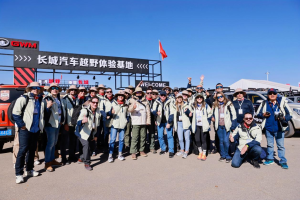The premier of Gauteng province, which includes Johannesburg, said 10 bodies were found late Monday at a looted shopping centre in Soweto, on the city’s outskirts. “The police discovered in the evening that 10 people died during (a) stampede,” provincial premier David Makhura told reporters.
The death toll for Gauteng stood at 19 deaths, he said.
Earlier, Sihle Zikalala, premier of the southeastern province of KwaZulu-Natal, said 26 people there had died.
“These were people killed during stampedes as protesters ran riot,” Zikalala said, without specifying locations.
TV footage showed dozens of women, some wearing their dressing gowns, men and even children strolled into a butcher’s cold store in of Soweto, coming out balancing heavy boxes of frozen meat on their shoulders or heads.
A sole private security guard stood by helplessly, frantically trying to make calls.
Police showed up three hours later, and fired rubber bullets.
In Alexandra township north of Johannesburg, hundreds of people streamed in and out of a shopping mall, freely picking up groceries.
Other images showed a warehouse being looted in Pietermaritzburg, KwaZulu-Natal’s capital.
People hauled boxed refrigerators through bushes to a long line of cars that were parked along a highway.
‘Anarchy’
At least 757 people have been arrested, Police Minister Bheki Cele told a news conference, with most of the arrests taking place in Johannesburg, South Africa’s economic capital.
Sounding a note of optimism, he insisted the police would ensure the situation “does not deteriorate any further.”
In his nationwide address Monday night, Ramaphosa lashed “opportunistic acts of criminality, with groups of people instigating chaos merely as a cover for looting and theft.”
It was “of vital importance that we restore calm and stability to all parts of the country without delay,” he said.
“The path of violence, of looting and anarchy, leads only to more violence and devastation,” Ramaphosa said.
The unrest erupted last Friday after Zuma started serving a 15-month term for snubbing a probe into the corruption that stained his nine years in power.
Once dubbed the “Teflon president,” Zuma was handed the jail term on June 29 by the Constitutional Court for bucking an order to appear before a commission probing the graft that proliferated under his nine years in power.
He started serving the jail term on Thursday after handing himself in to authorities as a deadline for surrender loomed.
He is seeking to have the ruling set aside.
The Constitutional Court sat for 10 hours on Monday hearing from Zuma’s lawyers asking the court review its ruling. But the court reserved its judgement to a later, but unspecified date.
Zuma popularity
Zuma, 79, is a former anti-apartheid fighter who spent 10 years in jail in the notorious Robben Island jail off Cape Town.
He rose in democratic South Africa to vice president and then president, before being ousted by the ruling African National Congress (ANC) in 2018 as graft scandals proliferated.
But he remains popular among many poor South Africans, especially grassroots members of the ANC, who portray him as a defender of the disadvantaged.
Protests that began after Zuma started his sentence were swiftly followed by pillaging of shopping malls, with people carting away TV sets, furniture, alcohol, food and other items, with the police seemingly powerless to act.
Ramaphosa took aim at those who said the unrest was political.
“There is no grievance, nor any political cause, that can justify the violence and destruction,” he said.
South Africa, Africa’s most industrialised country, is deep in an economic malaise, with cripplingly high levels of unemployment. Economic activity has been badly affected by restrictions to stop the spread of coronavirus.




